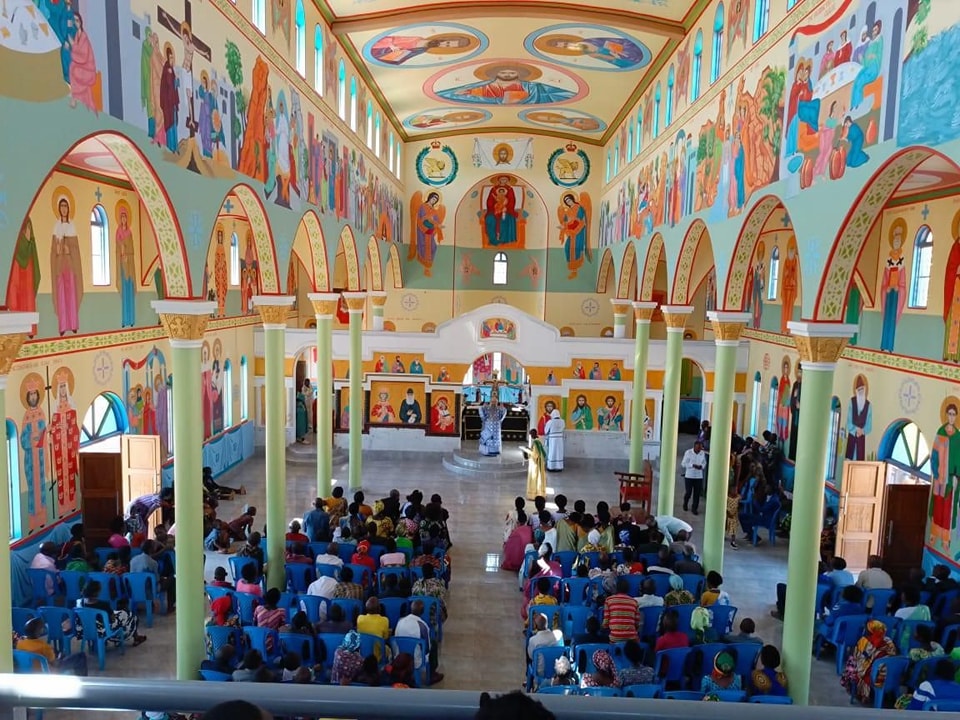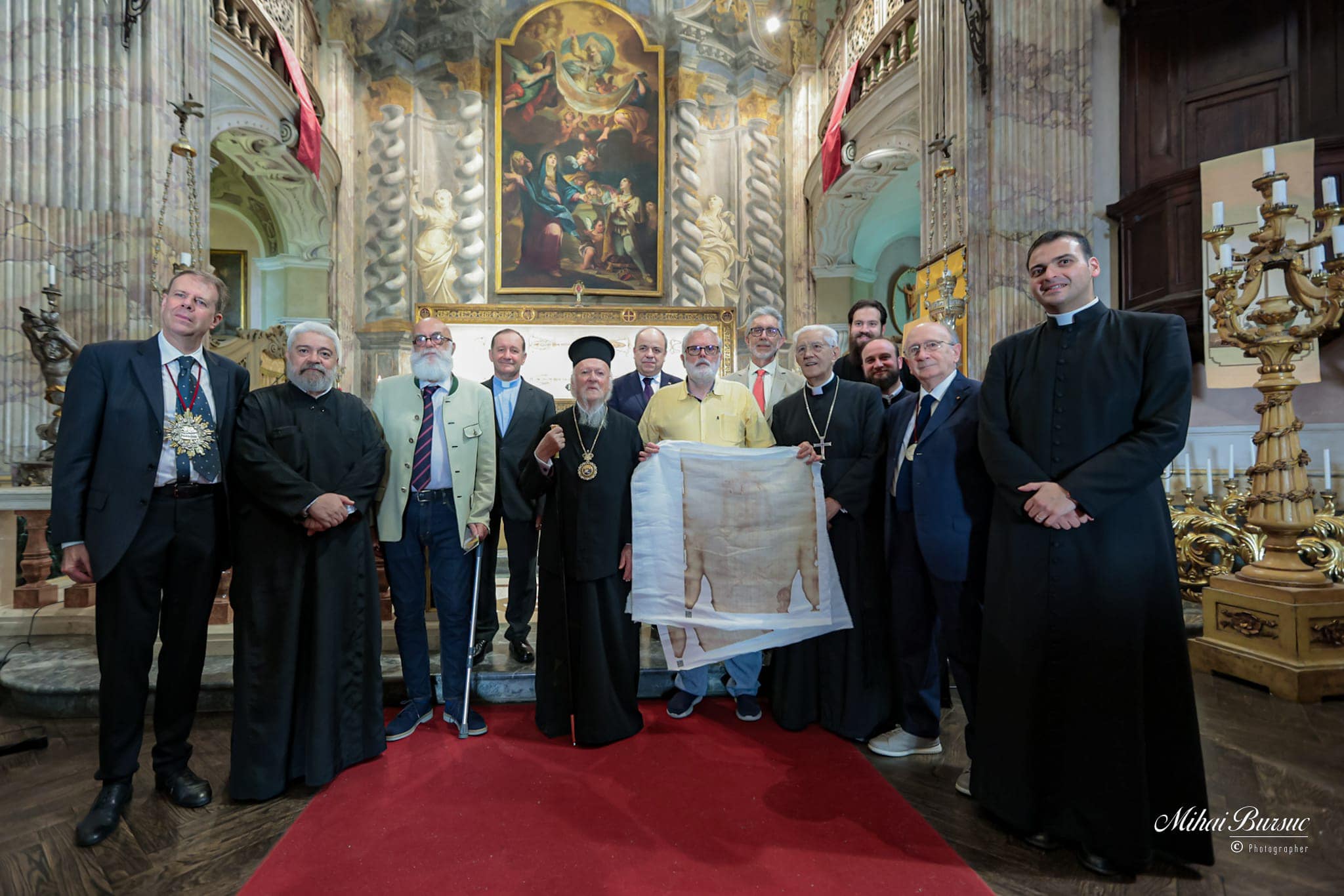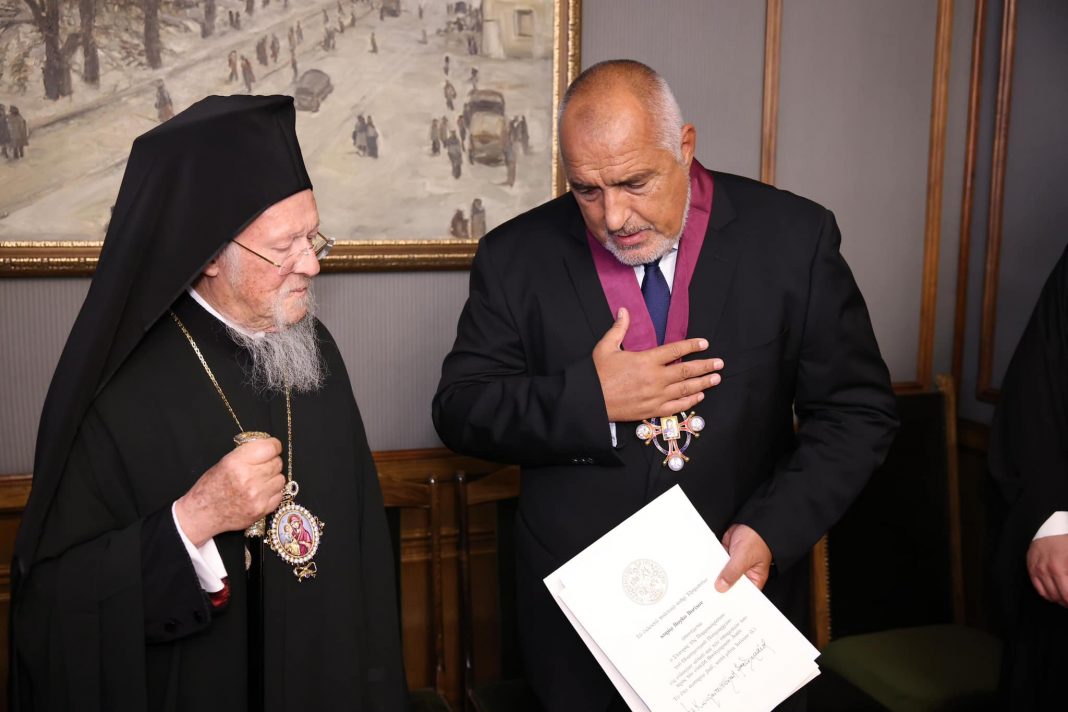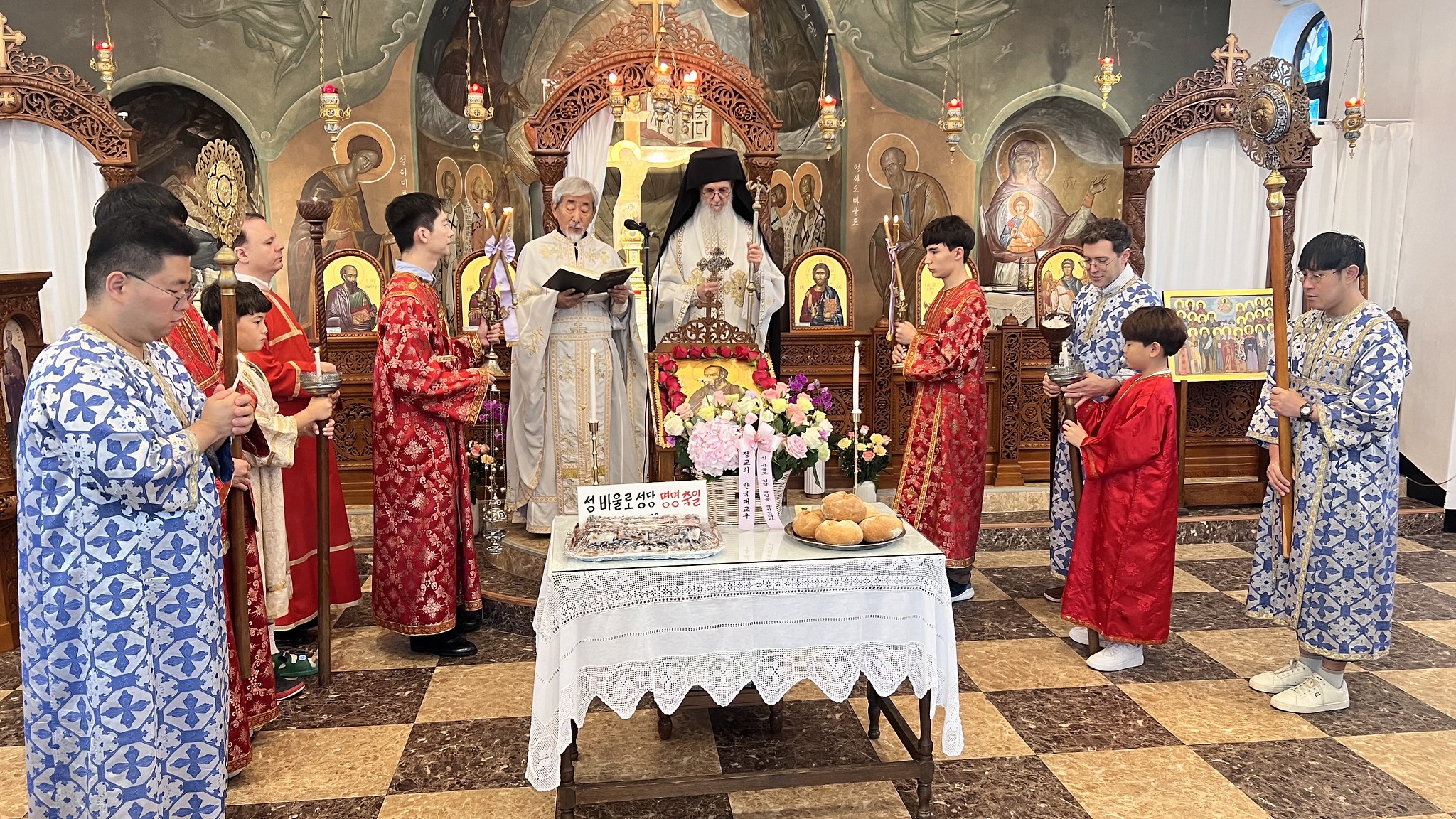Saint Andrew, Archbishop of Crete (4 July)
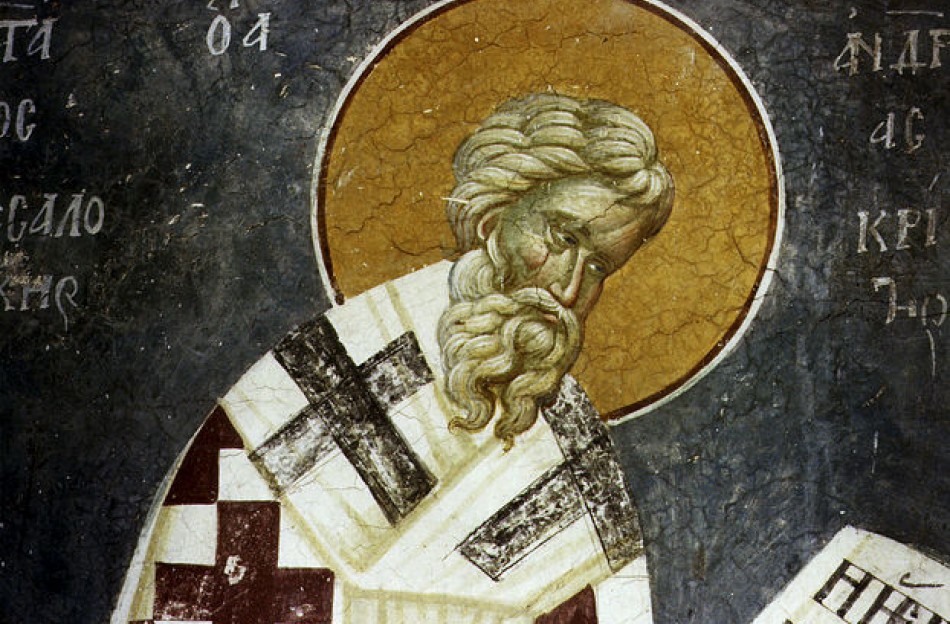

Saint Andrew, Archbishop of Crete, was born in the city of Damascus into a pious Christian family. Up until seven years of age the boy was mute and did not talk. However, after communing the Holy Mysteries of Christ he found the gift of speech and began to speak. And from that time the lad began earnestly to study Holy Scripture and the discipline of theology.
At fourteen years of age he went off to Jerusalem and there he accepted monastic tonsure at the monastery of Saint Savva the Sanctified. Saint Andrew led a strict and chaste life, he was meek and abstinent, such that all were amazed at his virtue and reasoning of mind. As a man of talent and known for his virtuous life, over the passage of time he came to be numbered among the Jerusalem clergy and was appointed a secretary for the Patriarchate — a writing clerk.
In the year 680 the locum tenens of the Jerusalem Patriarchate, Theodore, included archdeacon Andrew among the representatives of the Holy City sent to the Sixth Ecumenical Council, and here the saint contended against heretical teachings, relying upon his profound knowledge of Orthodox doctrine. Shortly after the Council he was summoned back to Constantinople from Jerusalem and he was appointed archdeacon at the church of Hagia Sophia, the Wisdom of God. During the reign of the emperor Justinian II (685-695) Saint Andrew was ordained bishop of the city of Gortineia on the island of Crete. In his new position he shone forth as a true luminary of the Church, a great hierarch — a theologian, teacher and hymnographer.
Saint Andrew composed many inspired writings, including the Great Canon of Repentance which is sung on Monday through Thursday of the first week of Lent, after the usual beginning of Compline, and following Psalm 69/70. In current Greek practice the Great Canon begins after the Doxology. The Great Canon of Repentance includes 250 troparia within its 9 Odes. Before each Troparion of the Canon, we make the Sign of the Cross and bow and sing “Have mercy upon me, O God, have mercy upon me.” On Thursday of the fifth week, the Great Canon is sung continuously in its entirety. After Psalm 90/91 “God is with us,” is read plainly and without a melody (outside of Great Lent). During Lent, however, the verses are sung slowly by the choir with the refrain “For God is with us” after each verse.1
Saint Andrew has also composed the Canon for the Feast of the Nativity of Christ, three Odes for Compline of Palm Sunday, and also in the first four days of Passion Week, as well as verses for the Feast of the Meeting of the Lord, and many other Church hymns. His hymnographic legacy was continued by other great composers of following ages: Saints John of Damascus (December 4), Cosmas of Maiuma (October 12), Joseph the Hymnographer (April 4), Theophánēs the Branded (October 11), etc.
Church historians are not of the same opinion as to the date of death of the saint. One suggests the year 712, while others — the year 726. He died on the island of Mytilene, while returning to Crete from Constantinople, where he had been on churchly business. His relics were transferred to Constantinople. In the year 1350 the pious Russian pilgrim Stephen Novgorodets saw the relics at the Constantinople monastery named for Saint Andrew of Crete.
1 For further information consult The Lention Triodion by Mother Mary and Archimandrite Kállistos Ware.


Saint Andrew was from Damascus; his parents’ names were George and Gregoria. He became a cleric and secretary of Theodore and Patriarch of Jerusalem; from this, he is called “the Jerusalemite.” He was present at the Sixth Ecumenical Council in Constantinople, which was convoked in 680 during the reign of Emperor Constantine IV (668-685). He became deacon of the Great church in Constantinople, that is, the Church of the Holy Wisdom of God, then Archbishop of Crete. He reposed in 720 or 723. Beside his other sacred writings, he also composed various hymns, among which is the famous Great Canon, which is chanted during Great Lent (see the Thursday of the Fifth Week of the Fast).
Andrew was born in Damascus of Christian parents, and he was mute from birth until the age of seven. When his parents brought him to church and he received Holy Communion, he began to speak. Such is the power of Divine and Holy Communion. At age fourteen, Andrew went to Jerusalem and was tonsured in the Lavra of St. Sabas the Sanctified. By virtue of his understanding and asceticism, he surpassed many of the older monks and was an example to them. After a while the patriarch took him as his personal secretary. When the Monothelite heresy–which held that the Lord Jesus did not possess a human will, but only a divine will–began to rage, the Sixth Ecumenical Council was convened in Constantinople, in the year 681 A.D. during the reign of Constantine IV [Bearded One].
Theodore, the Patriarch of Jerusalem, was unable to attend the council but sent Andrew (at the time an archdeacon) as his representative. There, Andrew displayed his splendid gifts, his oratory, his zeal for the Faith, and his rare prudence. Having assisted in strengthening the Orthodox Faith, Andrew returned to his duties in Jerusalem. Later, he was elected and installed as the Archbishop of the Island of Crete. As archbishop, he was greatly loved by the people. Andrew was very zealous for Orthodoxy and vehemently resisted all heresies. Through his prayers he worked miracles, including driving the Saracens from the Island of Crete.
Andrew wrote many books of instruction, hymns and canons, of which the most renowned is the Great Canon of repentance, read on the Thursday of the fifth week of the Great Lenten Season. His outward appearance was such that, “seeing his face and hearing his words flowing like honey, everyone found delight and mended their ways.” Finally, while returning from a sea journey to Constantinople, Andrew foretold that his death would occur before he arrived in Crete. And so it happened. As the ship sailed near the island of Mitylene, this beacon of the Church finished his earthly life and his soul took up habitation in the Kingdom of Christ, in the year 721 A.D.
Apolytikion of Andrew the Hymnographer
Fourth Tone
A model of faith and the image of gentleness, the example of your life has shown you forth to your sheep-fold to be a master of temperance. You obtained thus through being lowly, gifts from on high, and riches through poverty. Andrew, our father and priest of priests, intercede with Christ our God that He may save our souls.
Kontakion of Andrew the Hymnographer
Second Tone
While trumpeting forth the songs of God with clarity, thou also didst prove a blazing light for all the world, O most righteous Andrew, who shonest with the light of the Trinity. Wherefore, we all cry out to thee: Cease not to entreat the Master for us all.
Source: oca.org / goarch.org / westserbdio.org

